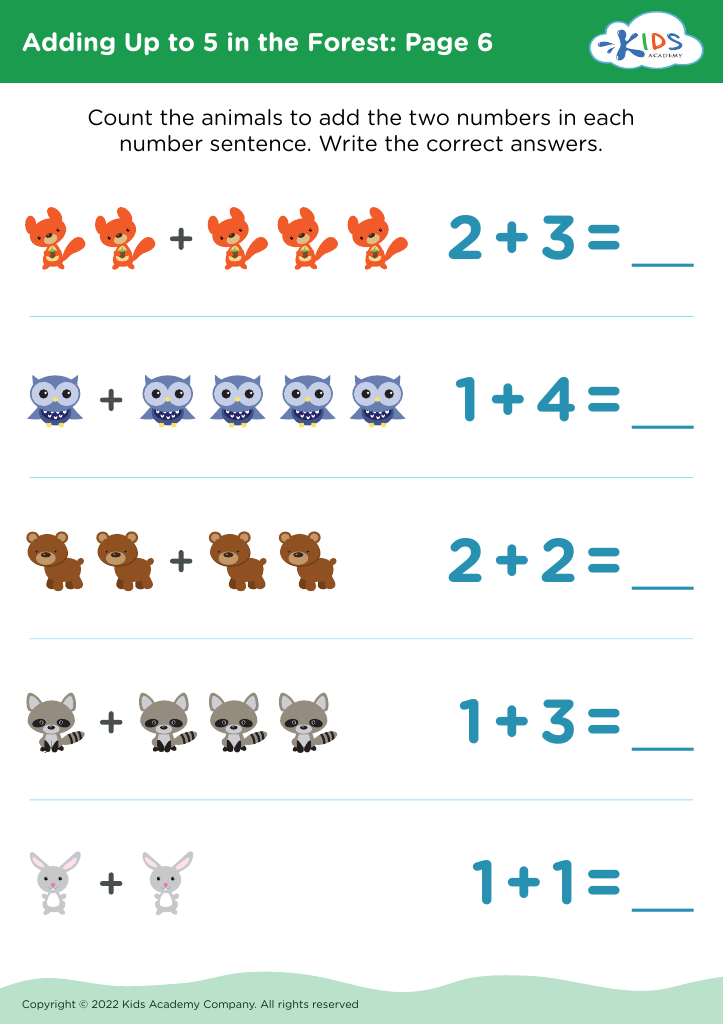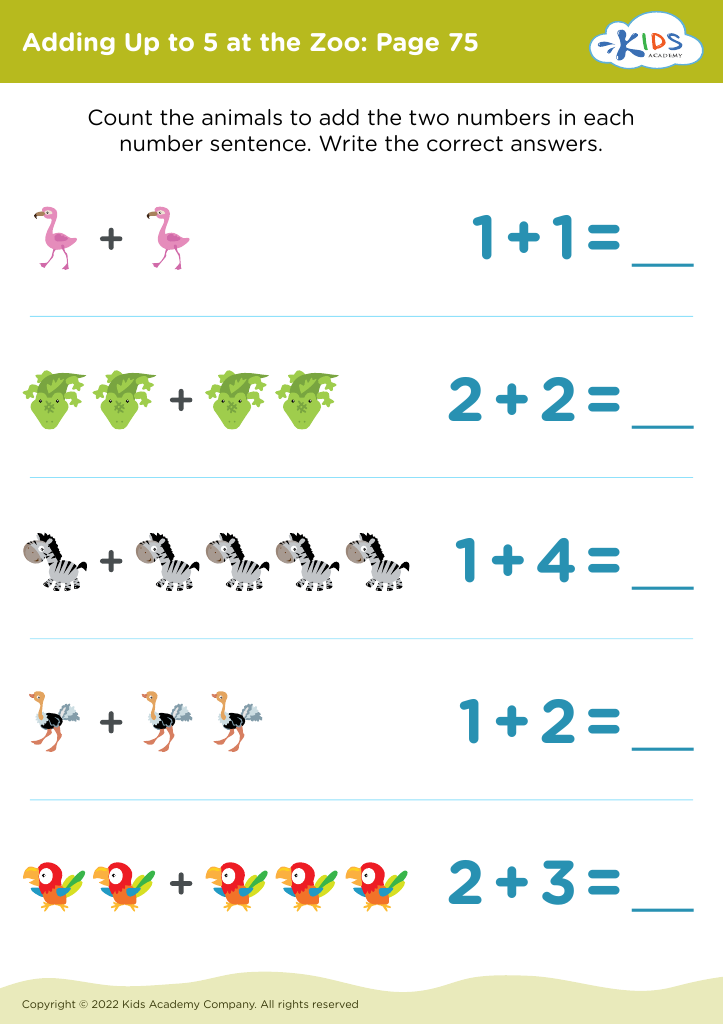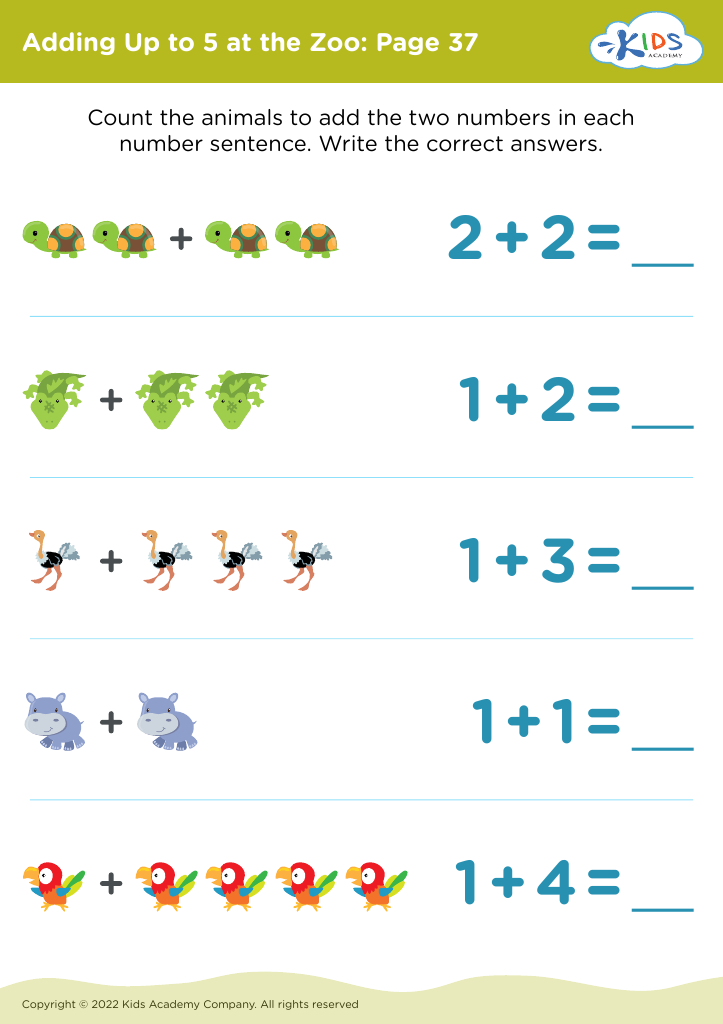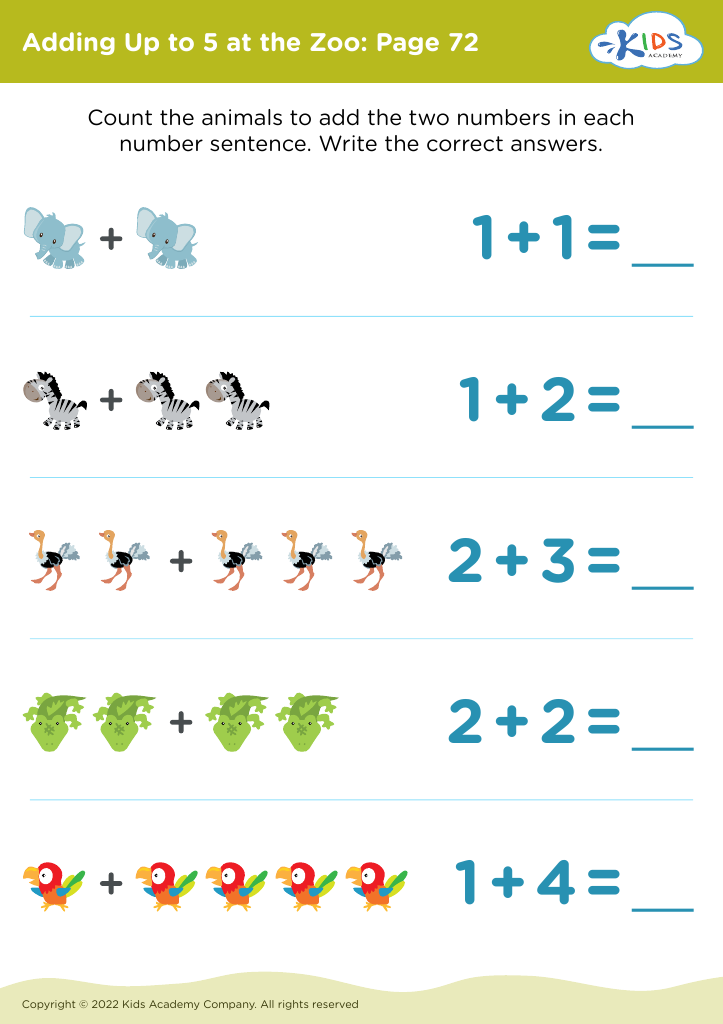Animal recognition Addition & Subtraction Worksheets for Ages 5-7
99 filtered results
-
From - To
Discover our engaging Animal Recognition Addition & Subtraction Worksheets designed specifically for children aged 5-7! These fun and interactive worksheets combine animal themes with essential math skills, making learning enjoyable for young minds. Each activity encourages kids to recognize different animals while practicing basic addition and subtraction, laying a strong foundation for their mathematical journey. With colorful illustrations and kid-friendly content, these worksheets are perfect for both classroom and home use. Foster your child's love for learning through playful exercises that strengthen their math abilities and spark their curiosity about the animal kingdom. Start exploring today!
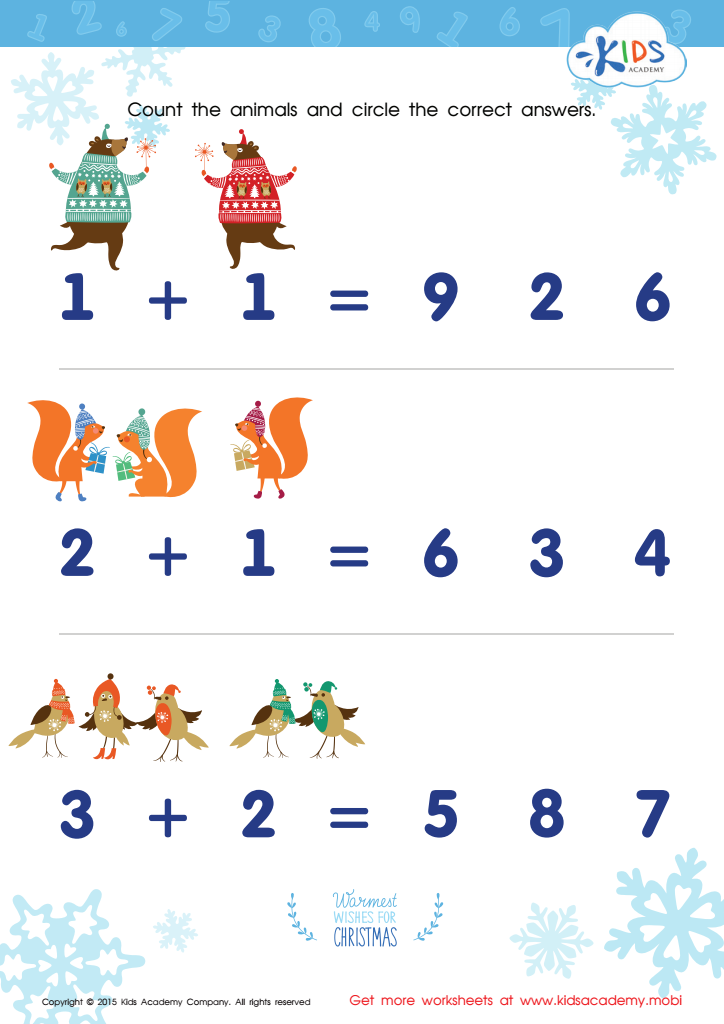

Count Funny Animals Worksheet
Animal recognition addition and subtraction for children ages 5-7 is a valuable learning tool that combines mathematical skills with engaging themes, making learning more relatable and enjoyable. Firstly, at this developmental stage, children are naturally curious about animals. Using animals as a context for math problems can capture their interest, making the learning process more engaging. When children visualize animals in subtraction and addition problems, they can relate better to the concepts being taught, which helps in enhancing their problem-solving abilities.
Additionally, this approach aids in fostering foundational math skills. Recognizing animals while solving these basic arithmetic problems helps children develop their counting, reasoning, and critical thinking skills. It encourages them to grasp essential math concepts in a fun way, leading to improved confidence in their mathematical abilities. Moreover, integrating animals into lessons fosters empathy, as children learn to care about possibly endangered species and the importance of wildlife, promoting environmental awareness.
Ultimately, when parents and teachers prioritize methods that merge math with exciting and meaningful themes like animal recognition, they facilitate deeper learning experiences. They not only nurture cognitive development but also prepare children to think critically about the world around them. Support in these formative years lays the foundation for future academic success.
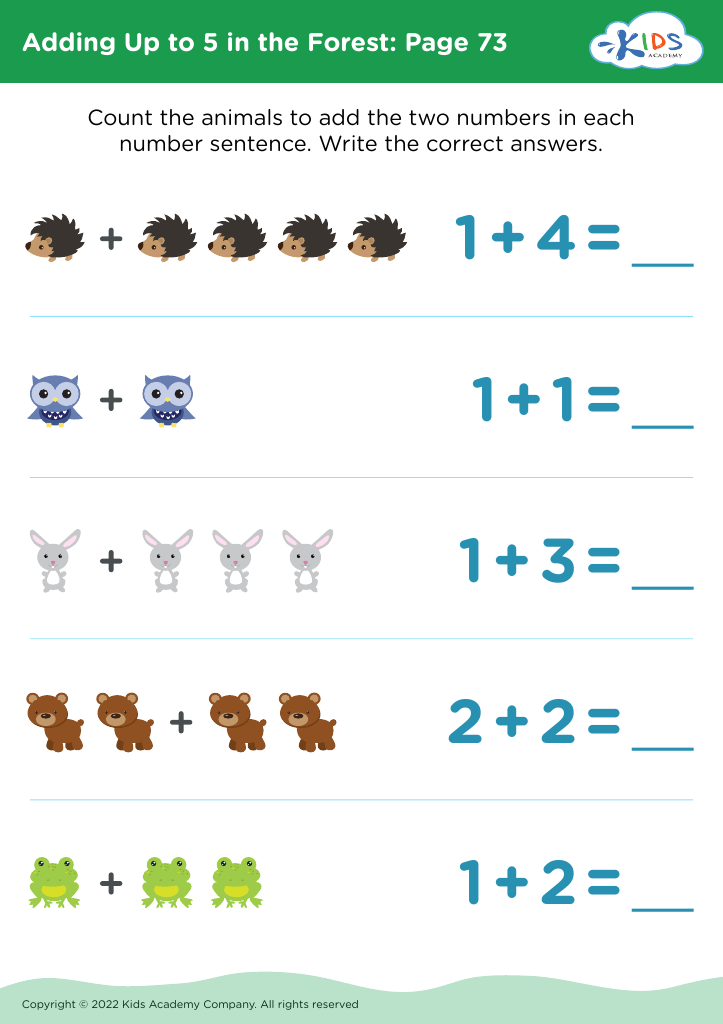

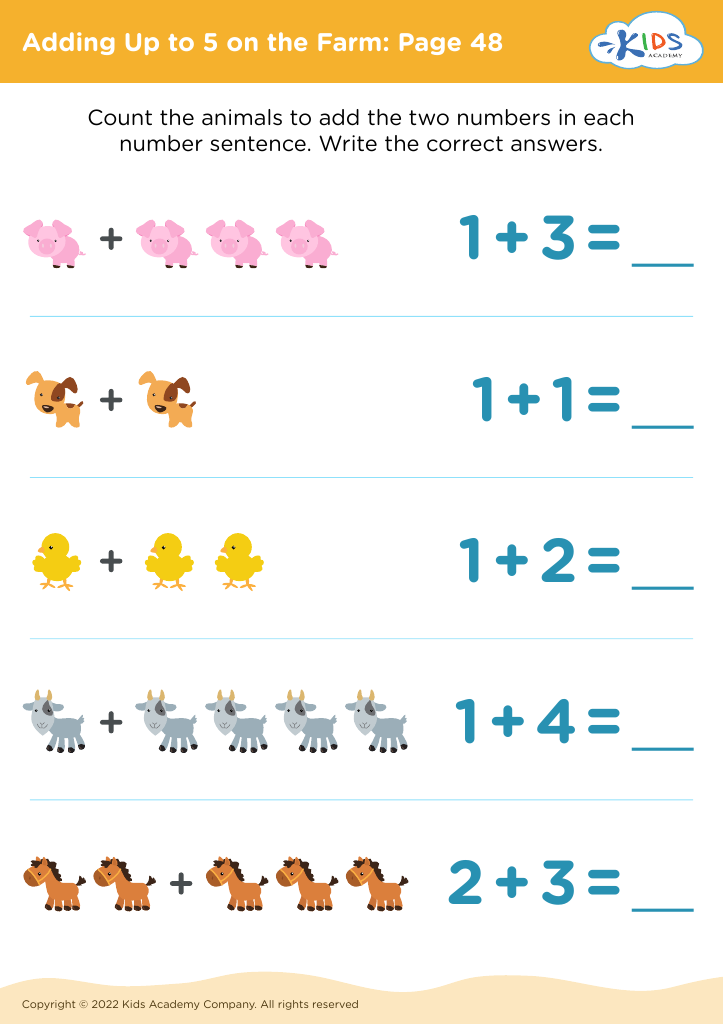
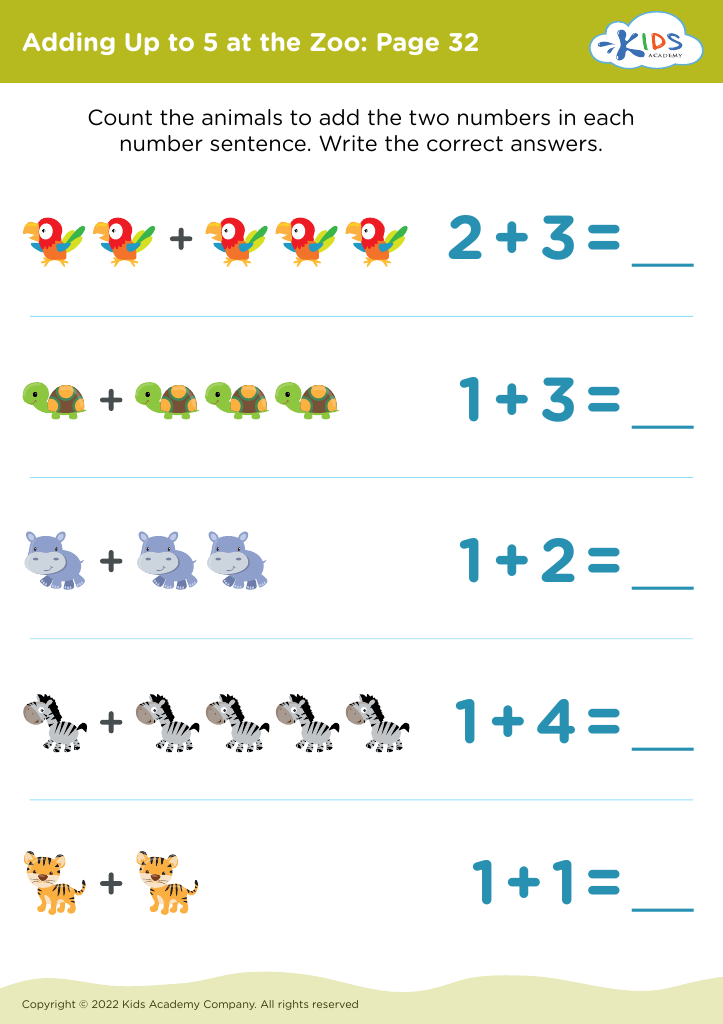
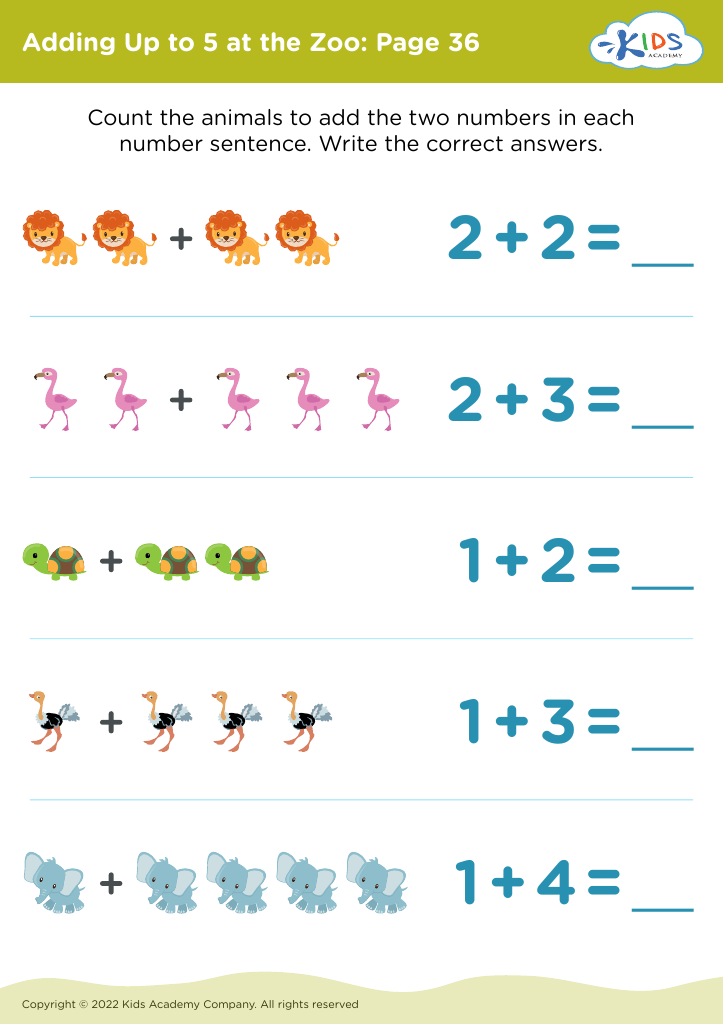
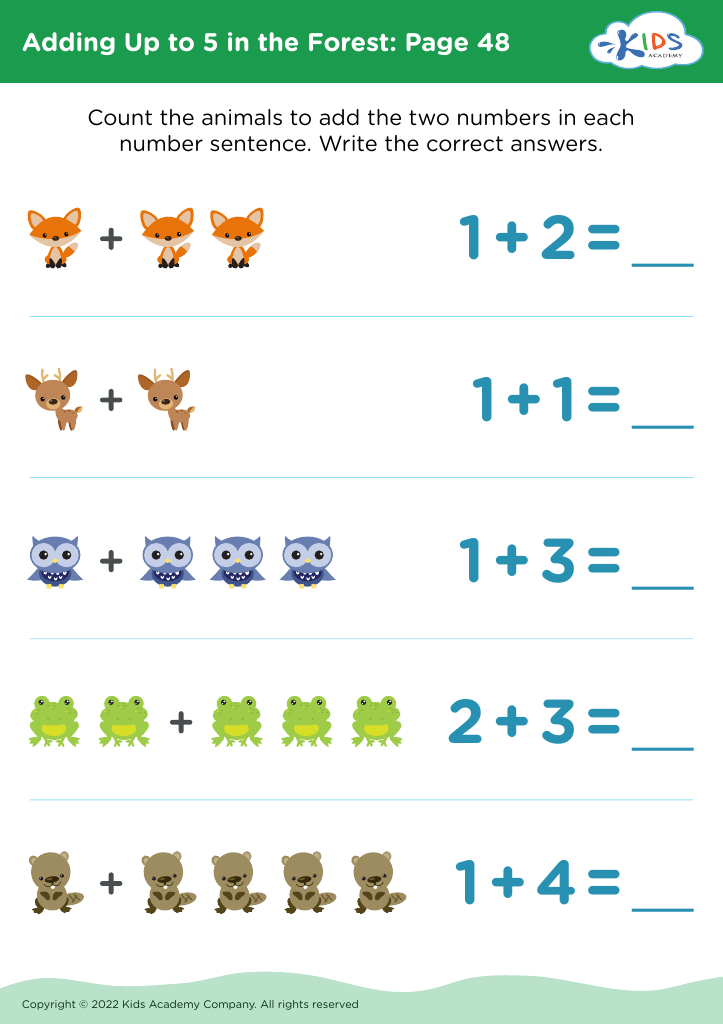

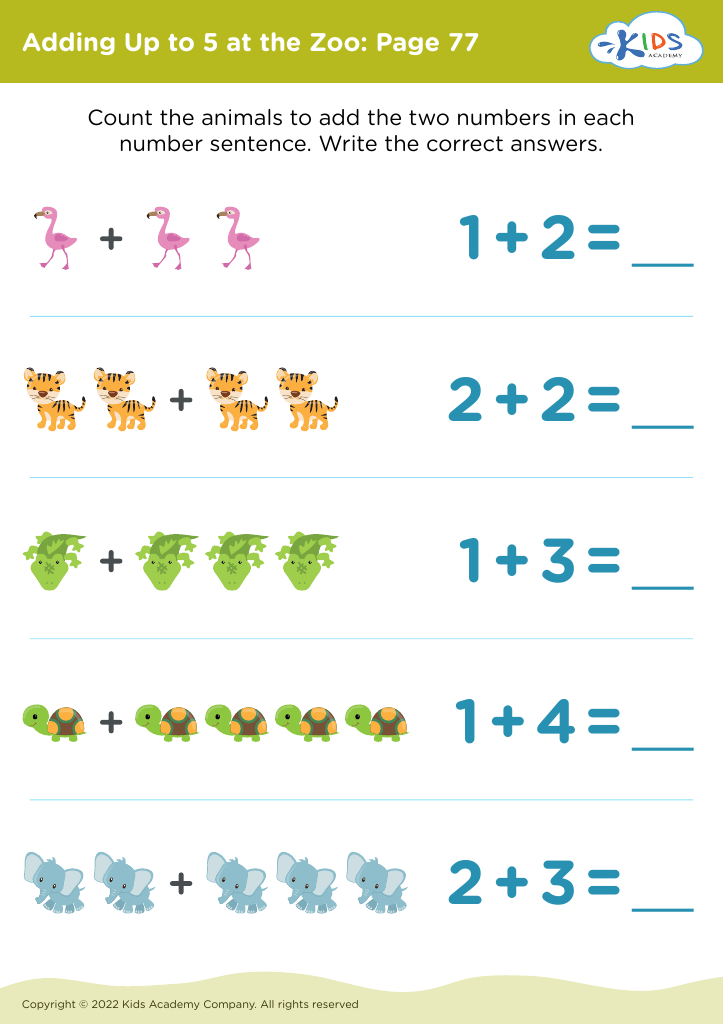
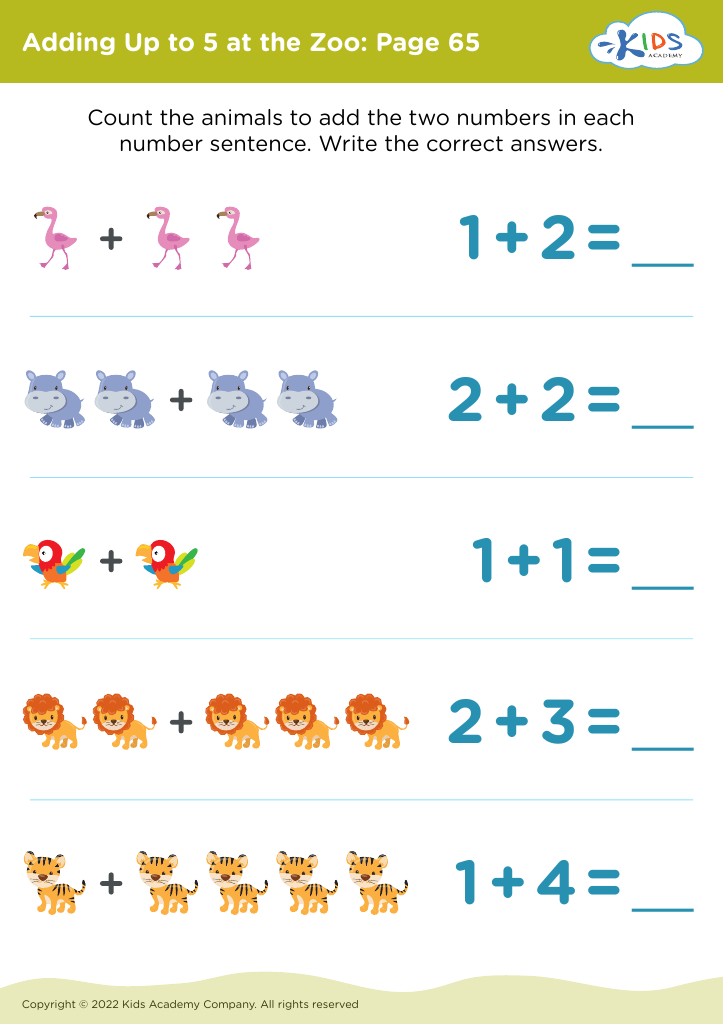
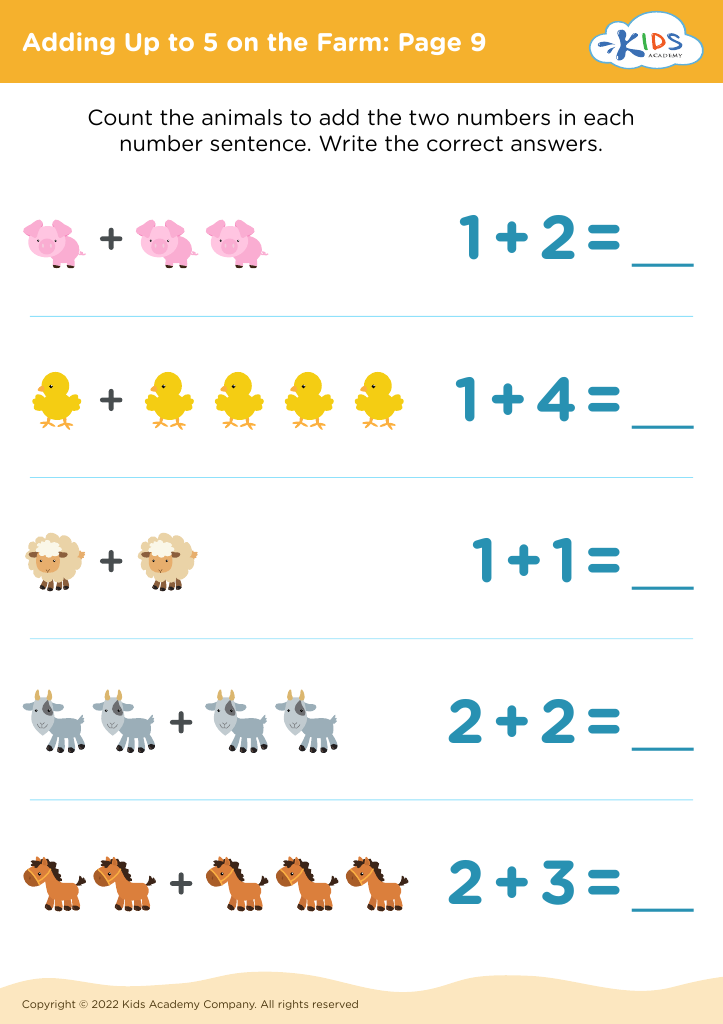
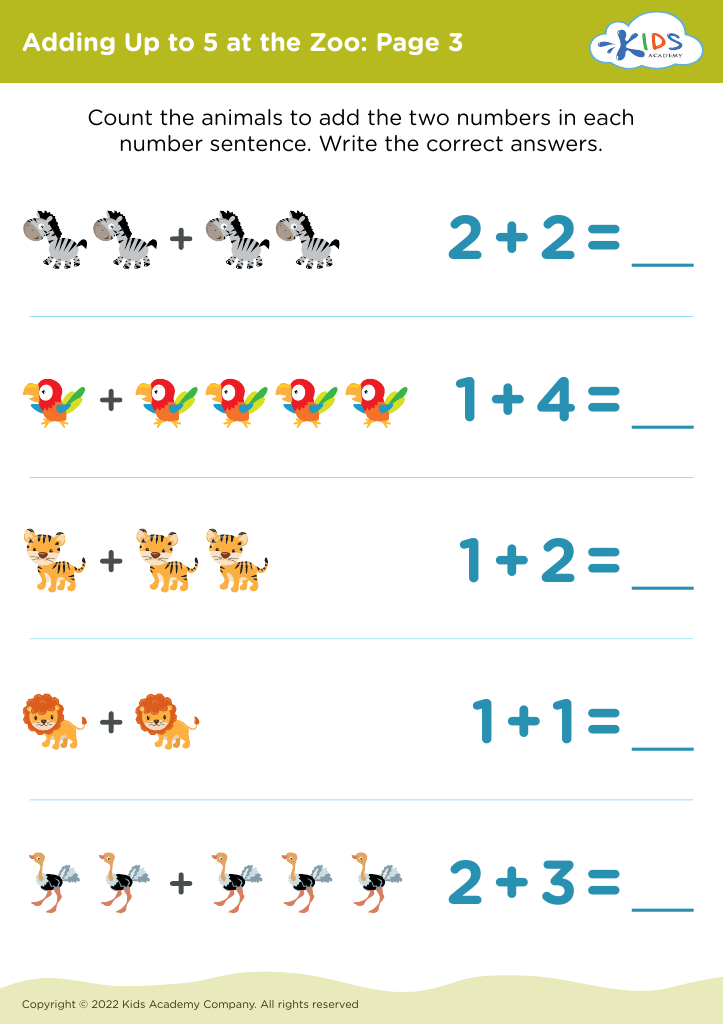
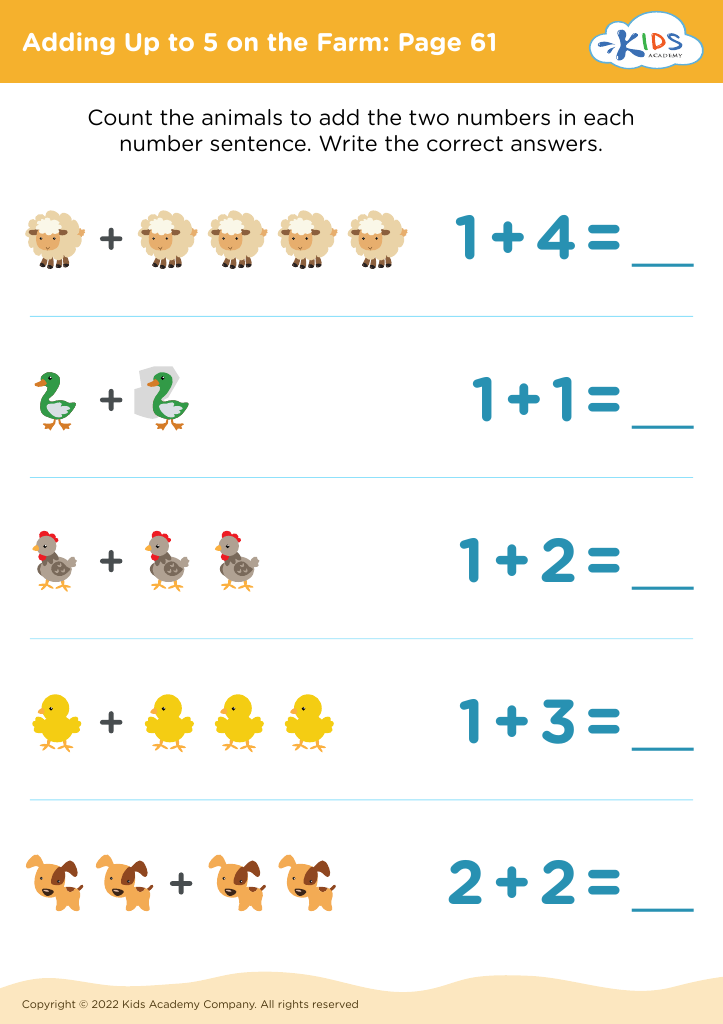
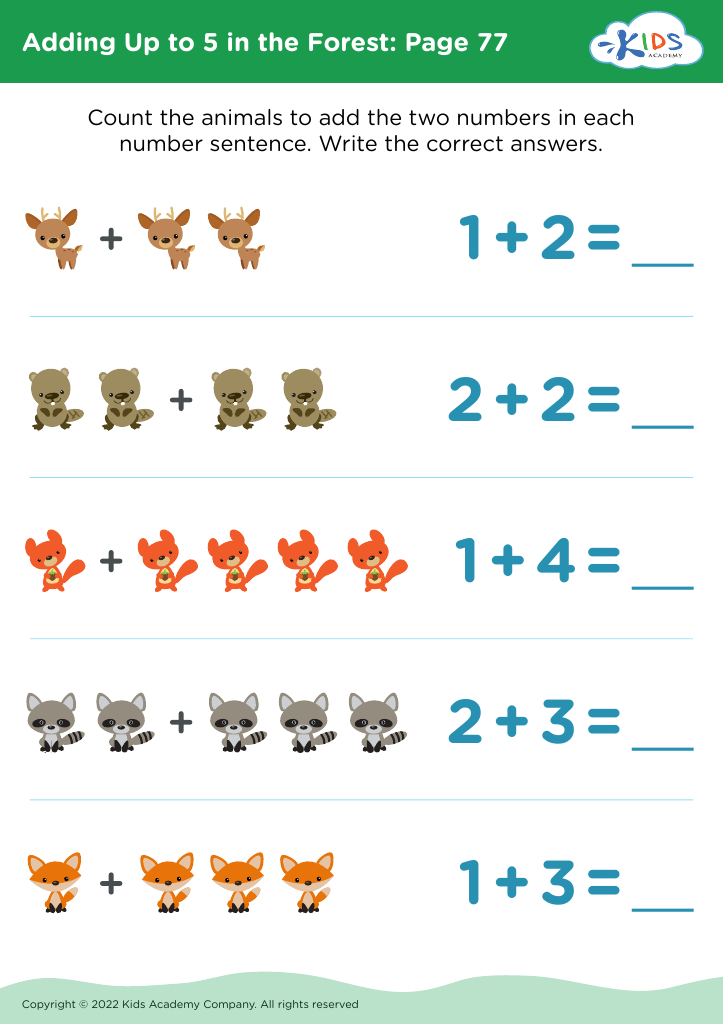
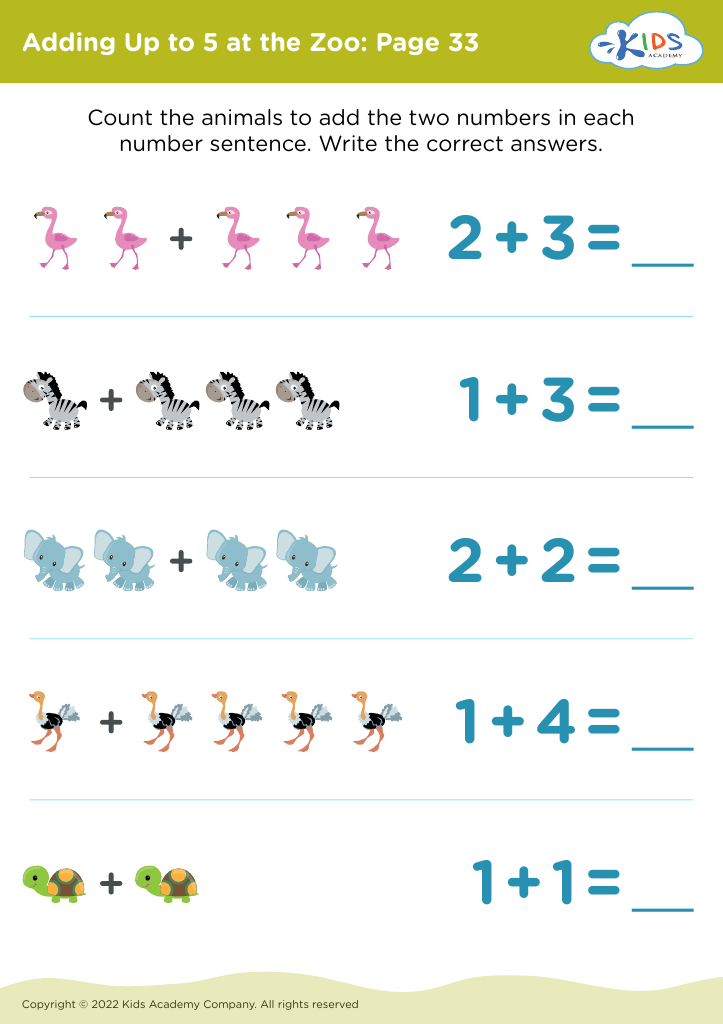
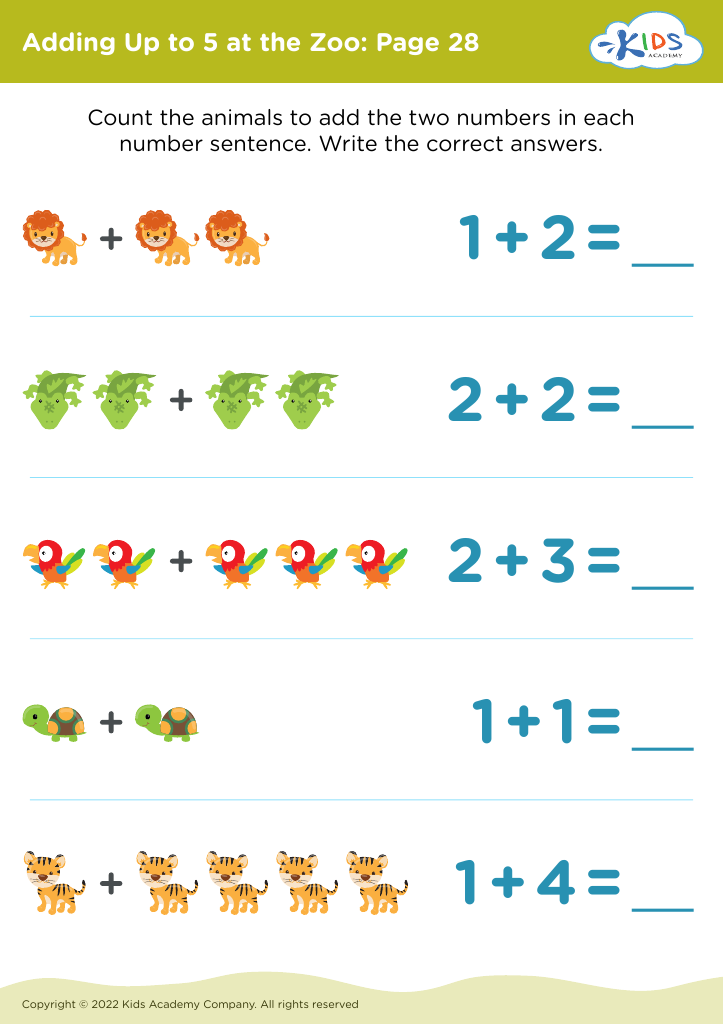

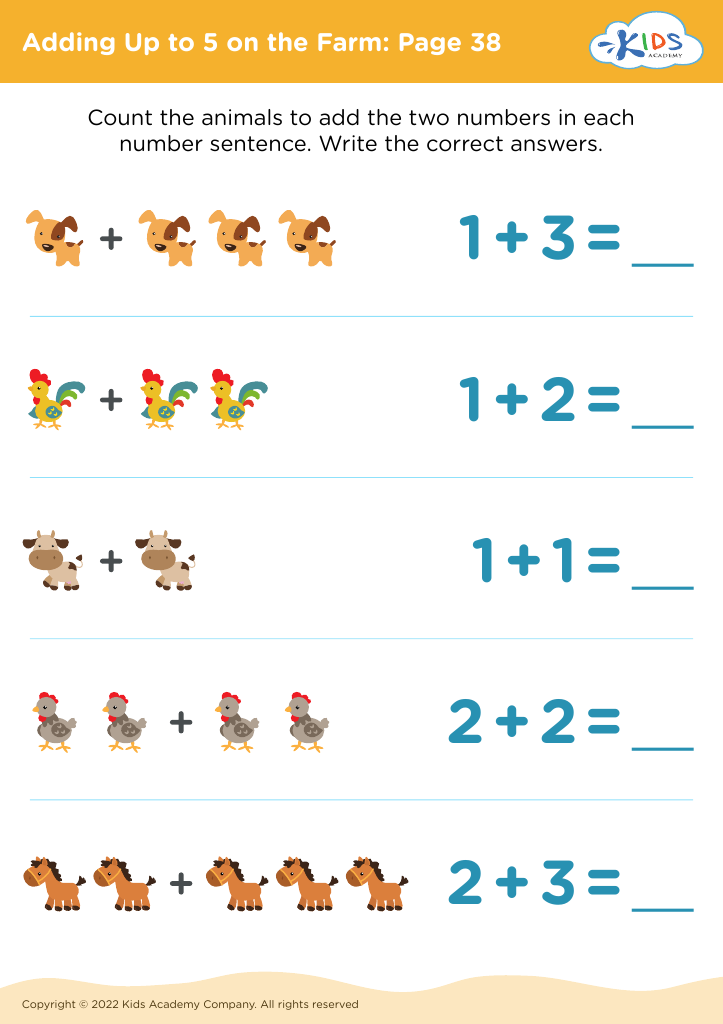
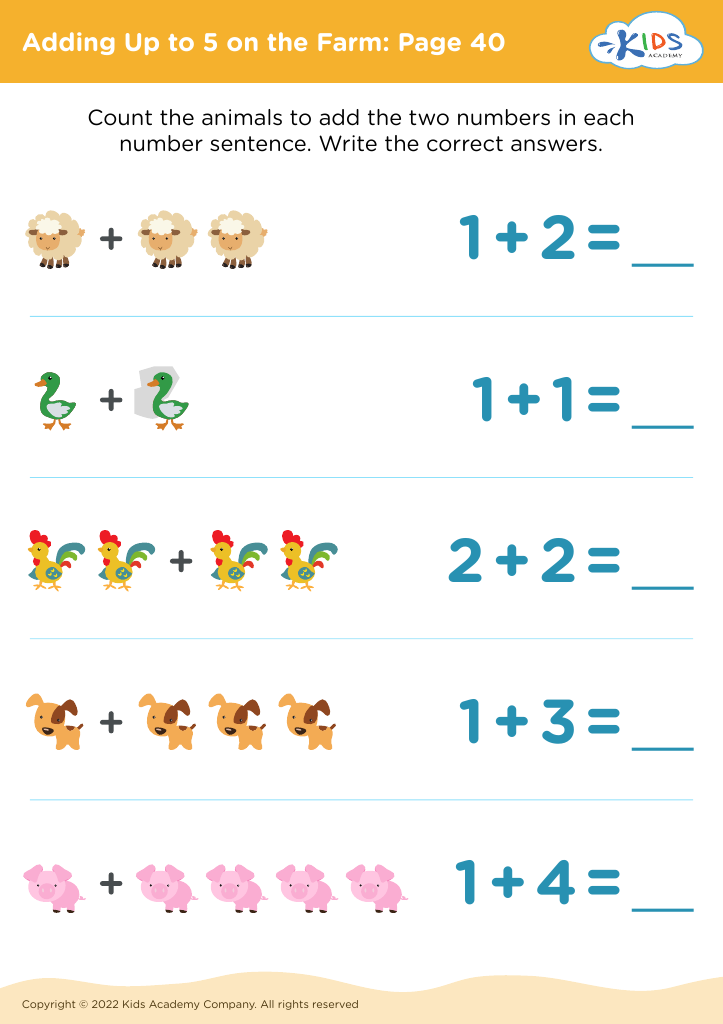
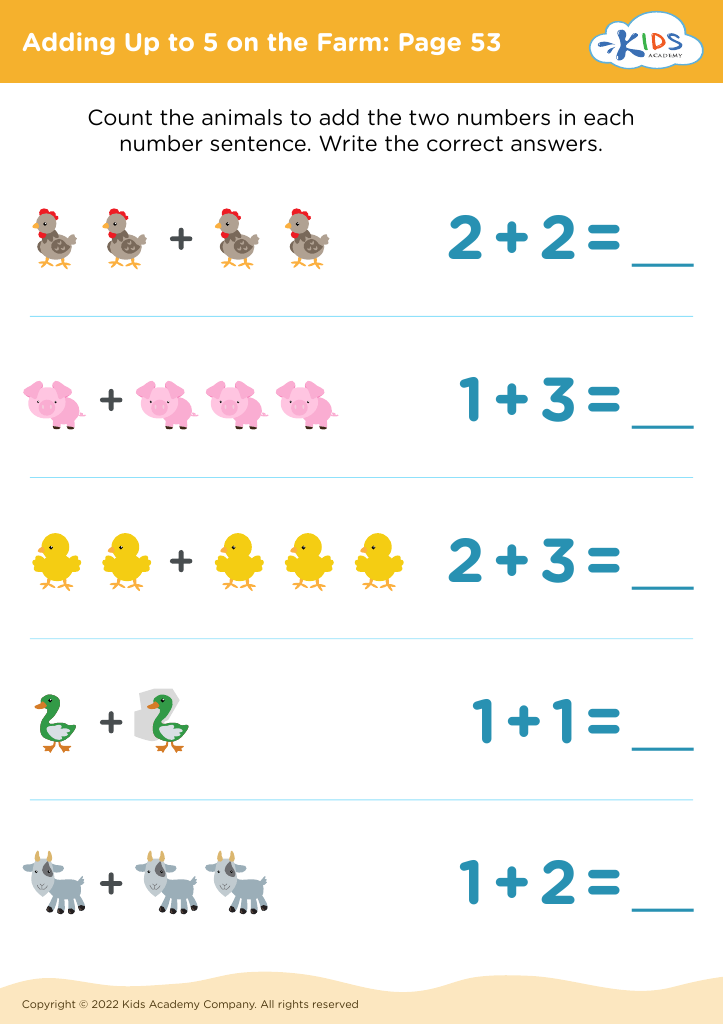
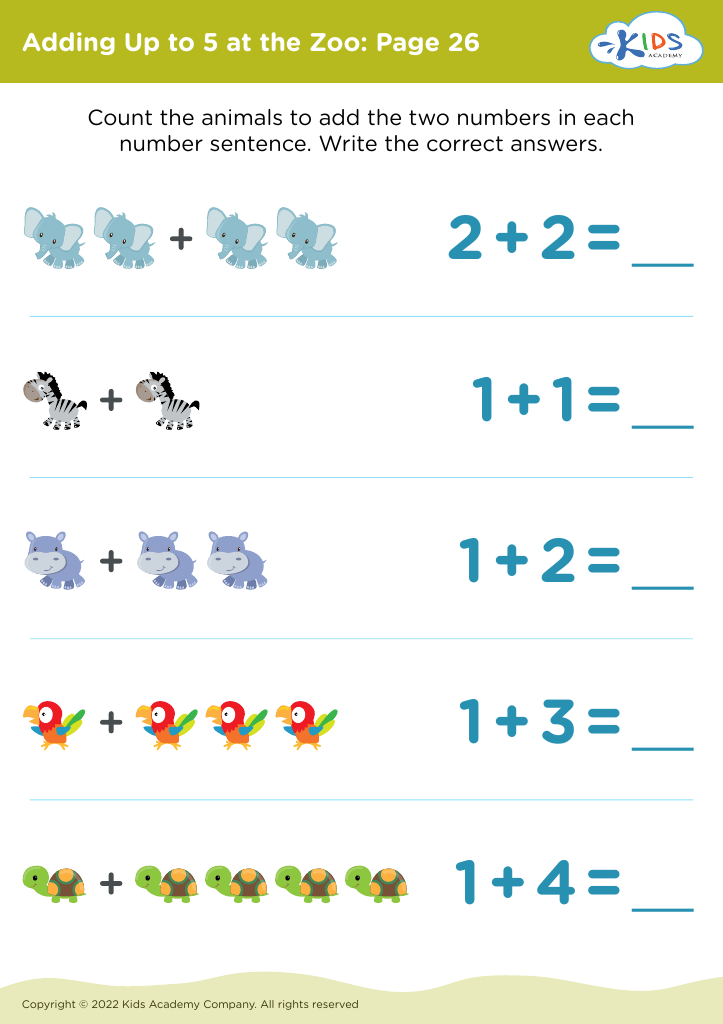
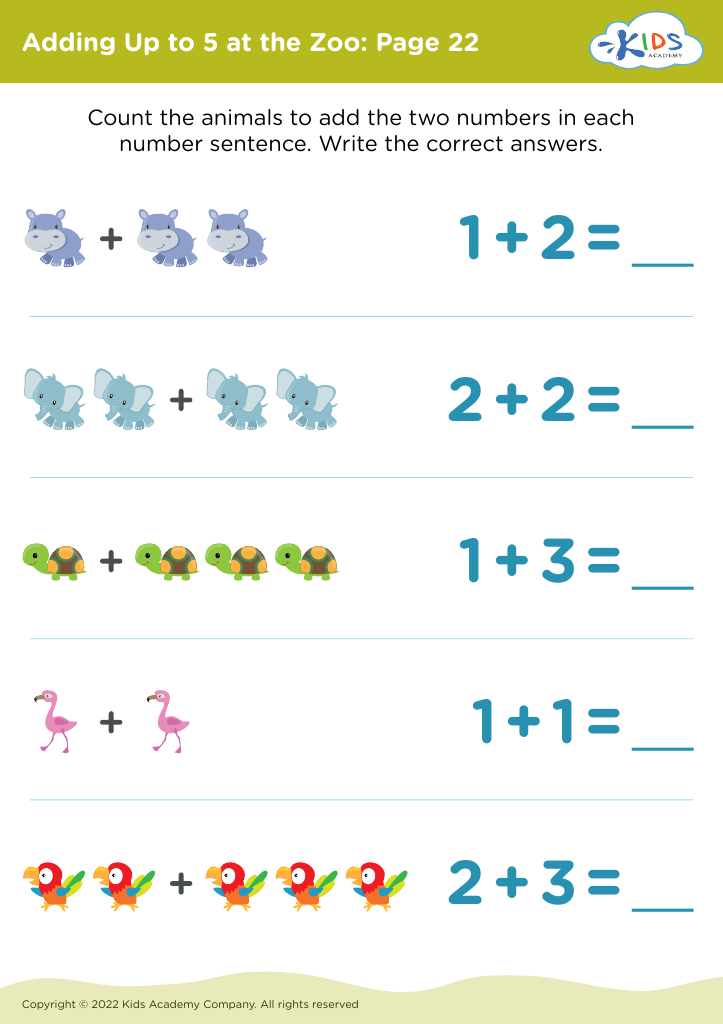
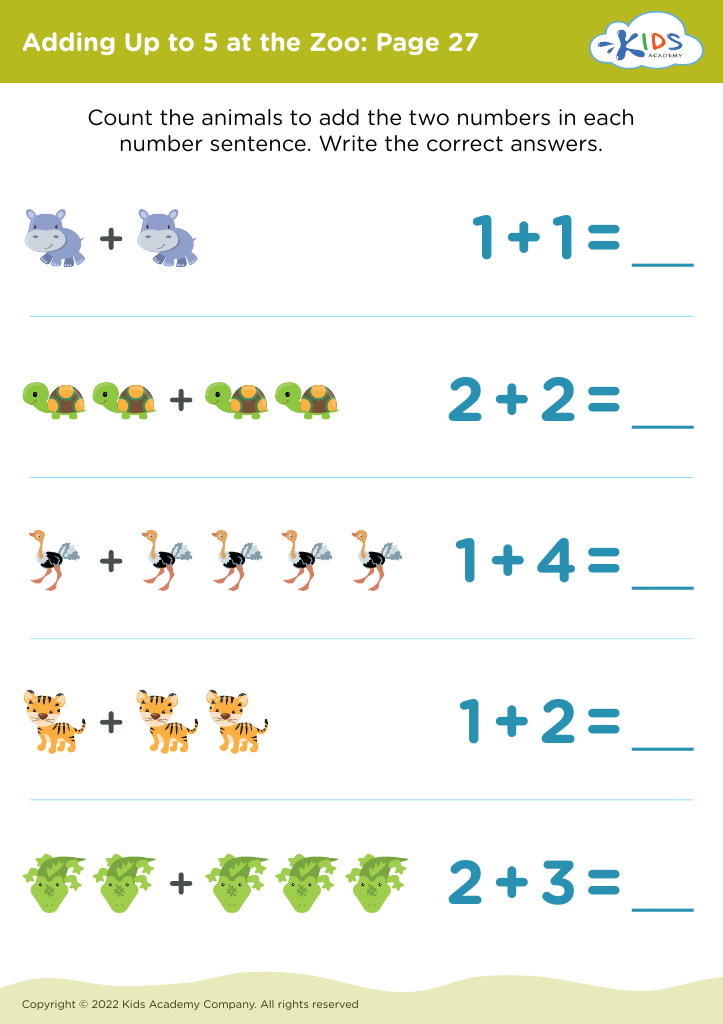
 Assign to My Students
Assign to My Students
